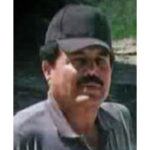Credentialing is often considered a bureaucratic hurdle in the healthcare profession, but for Nurse Practitioners (NPs), it is a critical and complex component of professional practice. At its core, credentialing is the process of verifying the qualifications, experience, and professional standing of healthcare providers. It ensures that NPs meet the required standards to deliver care within their scope of practice and according to the regulations of their specific state or institution.
The significance of credentialing extends beyond simply confirming educational achievements. It includes validating board certifications, licensure, work history, and references. These elements work together to ensure that the NP can provide safe and effective patient care. Moreover, the process also plays a pivotal role in securing privileges in hospitals and aligning with insurance companies for reimbursement.
Failure to navigate credentialing properly can result in delays in employment, denial of insurance claims, and even legal liability. Given the growing complexity of healthcare systems, understanding credentialing is more important than ever. Credentialing protects both the patient and the practitioner, serving as a gatekeeper for quality in a competitive and highly scrutinized industry.
Credentialing and Scope of Practice
The scope of practice for NPs varies by state, and credentialing is directly tied to what an NP is legally allowed to do. While some states grant full practice authority, others require physician oversight or collaborative agreements. Credentialing verifies that an NP has met the state’s regulatory requirements, thus defining and limiting the procedures, treatments, and responsibilities they can undertake.
Many NPs are unaware that without proper credentialing, even their advanced education and board certification cannot authorize them to perform specific tasks. This creates a critical junction between what NPs are trained to do and what they are legally permitted to perform. Credentialing ensures this alignment and prevents practitioners from stepping outside their legal boundaries, which can have serious legal and professional consequences.
To understand how credentialing intersects with regulatory pathways, it’s essential to recognize that there are typically two main avenues NPs can take, each with its own implications for professional autonomy and scope of practice. One route emphasizes greater independence and broader authority, while the other may involve more oversight and institutional alignment. Choosing the right path requires a thorough understanding of state laws, institutional policies, and long-term career goals, as these factors directly influence the level of clinical freedom and responsibility an NP can assume.
Credentialing and Employment Opportunities
In today’s competitive healthcare job market, credentialing can be the deciding factor in employment. Employers view properly credentialed NPs as less risky, more compliant, and ready to begin working with minimal onboarding delays. From hospitals to private practices, having an NP fully credentialed streamlines the hiring process and signals a level of professionalism that employers value.
Credentialing also affects the kind of positions NPs can apply for. Advanced roles in specialized departments, such as cardiology or emergency medicine, often require specific credentials that go beyond general licensure. Employers want assurance that candidates not only hold the requisite education but have been thoroughly vetted through recognized credentialing organizations.
Additionally, employment contracts often hinge on the successful completion of credentialing. Failure to be credentialed in a timely fashion can delay job offers or result in revocations. For NPs entering the workforce or transitioning to a new role, it is vital to begin the credentialing process as early as possible to avoid costly career setbacks.
Reimbursement and Insurance Paneling
Perhaps one of the most misunderstood aspects of credentialing is its influence on reimbursement. Insurance companies require NPs to be credentialed before they can bill for services. Without this credentialing, NPs may provide care that cannot be reimbursed, leading to financial losses for both the practitioner and their employer.
Paneling with insurance companies is an extension of the credentialing process. It involves becoming an approved provider within the insurer’s network. This process can take several months and requires a detailed review of the NP’s education, licensure, and professional experience. Being successfully paneled not only increases patient access but also secures the financial stability of an NP’s practice.
Credentialing also determines the billing codes and services that an NP is authorized to use. Incorrect or incomplete credentialing can lead to billing errors, claim denials, and compliance issues. These administrative hurdles can be mitigated with a proactive approach to credentialing and ongoing attention to insurance requirements and updates.
Legal Implications of Improper Credentialing
Credentialing is not merely a formality; it carries significant legal weight. Practicing without appropriate credentialing can result in serious consequences, including malpractice lawsuits, loss of license, and criminal charges. The healthcare industry is heavily regulated, and credentialing serves as a safeguard against unauthorized practice.
Many NPs may unknowingly fall into noncompliance due to misinformation or administrative oversights. For example, practicing in a different state without verifying reciprocal credentials or beginning work before credentialing is complete can expose an NP to legal action. Employers also face penalties if they allow uncredentialed practitioners to deliver care.
Maintaining accurate and updated credentials is equally important. As licensure renewals, certifications, and continuing education requirements evolve, so must the NP’s credentialing file. Regular audits and compliance checks help mitigate risks and ensure that both the individual practitioner and the organization remain protected from legal exposure.
Enhancing Professional Credibility and Trust
Credentialing reinforces public trust in the healthcare system by ensuring that NPs are qualified and competent. Patients are increasingly aware of provider qualifications and often seek reassurance that their healthcare provider has met rigorous standards. Credentialing offers this assurance, serving as an implicit contract of quality and reliability.
Healthcare institutions also benefit from a robust credentialing process. It signals a commitment to excellence, risk management, and patient safety. When organizations emphasize credentialing, they contribute to a culture of accountability and continuous improvement. This, in turn, boosts the reputation of the institution and its staff.
For NPs, being properly credentialed is a professional badge of honor. It reflects dedication to the craft and a willingness to meet and exceed industry standards. This kind of professional rigor not only enhances individual credibility but also uplifts the status of the NP role within the broader medical community.
Navigating the Credentialing Process Efficiently
The credentialing process is often time-consuming, involving extensive paperwork, documentation, and follow-up. However, there are strategies NPs can use to streamline the process and avoid common pitfalls. Starting early, maintaining organized records, and using credentialing software or services can significantly reduce the administrative burden.
Communication is another key component. Regular contact with credentialing departments, insurance companies, and state boards can keep the process moving and prevent unexpected delays. Following up on submitted documents, confirming receipt, and asking for status updates are simple yet effective ways to stay engaged in the process.
Finally, education plays a critical role. NPs should invest time in learning about the specific credentialing requirements for their state, specialty, and workplace setting. By understanding the steps involved and anticipating potential roadblocks, NPs can take control of the process and position themselves for success in their careers.
Credentialing is more than a bureaucratic requirement; it is an essential pillar of the NP profession. From defining scope of practice and unlocking employment opportunities to securing reimbursement and ensuring legal compliance, credentialing touches every facet of an NP’s professional life. A proactive, informed approach to credentialing not only enhances career prospects but also fortifies the integrity of the healthcare system as a whole.




